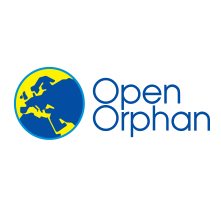
Monkeypox: The Lowdown
An ongoing outbreak of monkeypox was confirmed on 6 May 2022, beginning with a British resident who, after travelling to Nigeria, presented symptoms consistent with monkeypox on 29 April 2022.

An ongoing outbreak of monkeypox was confirmed on 6 May 2022, beginning with a British resident who, after travelling to Nigeria, presented symptoms consistent with monkeypox on 29 April 2022.

Open Orphan plc (LON:ORPH), a rapidly growing specialist contract research organisation (CRO) and the world leader in testing infectious and respiratory disease products using human challenge clinical trials, has announced its

Open Orphan plc (LON:ORPH), a rapidly growing specialist contract research organisation (CRO) and world leader in testing infectious and respiratory disease products using human challenge clinical trials, has announced that hVIVO, a

Flu season often wreaks havoc on workplaces, schools and communal living areas. It’s all too easy for germs to spread across surfaces and between people, swiftly infecting everyone within reach.

Open Orphan plc (LON:ORPH), a rapidly growing specialist contract research organisation (CRO) and world leader in testing infectious and respiratory disease products using human challenge clinical trials, has today announced that

Elderberries have long been in the limelight when it comes to their health-boosting properties. In fact, Healthline declared them to be “one of the most commonly used medicinal plants in the world”.

Open Orphan plc (LON:ORPH), a rapidly growing specialist contract research organisation (CRO) and world leader in testing infectious and respiratory disease products using human challenge clinical trials, has announced that it will

Open Orphan plc (LON:ORPH), a rapidly growing specialist contract research organisation (CRO) and world leader in testing infectious and respiratory disease products using human challenge clinical trials, has announced that hVIVO, a

Flu & Influenza The history of the flu dates to as far as humankind. Familiar symptoms of the flu were first recorded around 400BC by Hippocrates, a Turkish seasonal winter

Allergic rhinitis or, as it is commonly known, hay fever, is a reaction to allergens in the air. Most commonly this is a reaction to the pollen count, but can















